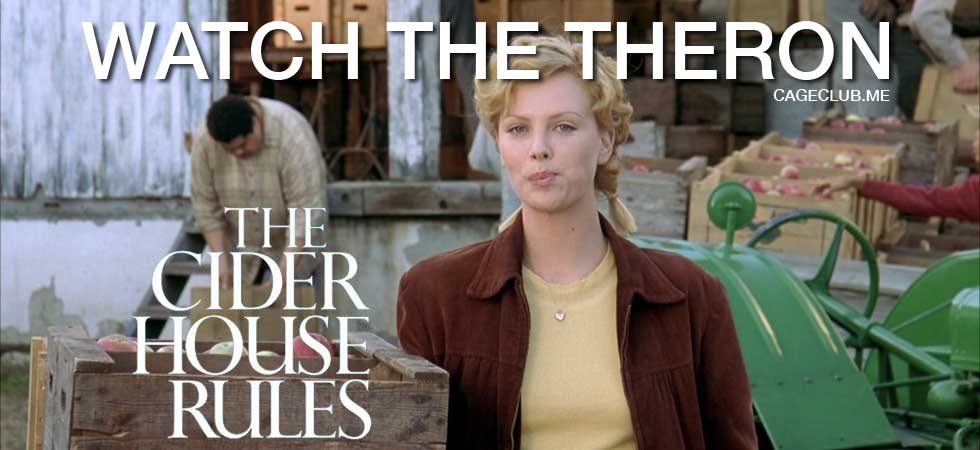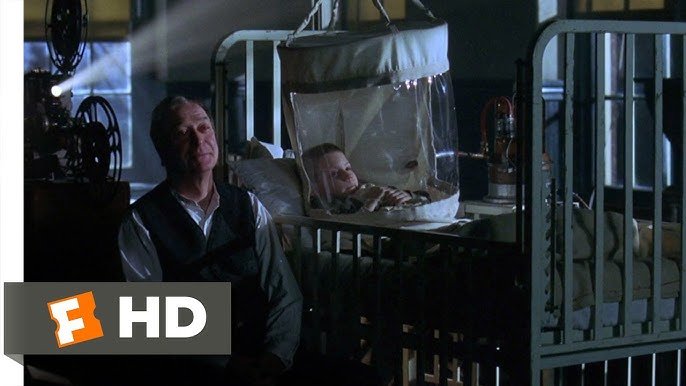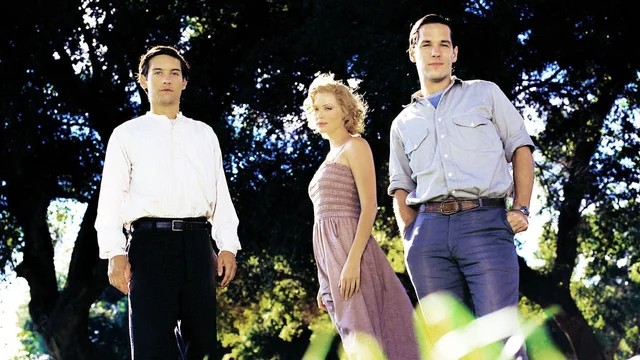The Cider House Rules (1999)

The Cider House Rules (1999) is a poignant and thought-provoking drama directed by Lasse Hallström, based on John Irving’s 1985 novel of the same name. The film explores themes of morality, choice, and the complexities of life through the lens of an orphan named Homer Wells, played by Tobey Maguire. Set in the early 20th century, the movie follows Homer as he grows up in an orphanage run by Dr. Wilbur Larch (Michael Caine), a compassionate but morally conflicted physician. The film delves into Homer’s journey of self-discovery, as he faces the choices that will shape his future, particularly regarding his role in the practice of abortion, a controversial issue at the time.
The story centers on Homer Wells, an orphan who has been raised at St. Cloud’s orphanage, where Dr. Larch serves as both the head of the institution and a surrogate father figure to Homer. Dr. Larch also performs abortions for women in need, though it’s considered illegal and taboo. Homer is trained under Dr. Larch’s guidance, but he struggles with the ethical dilemma of participating in the procedures. As Homer grows older, he begins to question his place in the orphanage and in the world. Eventually, he leaves the orphanage and works on an apple orchard, where he forms a relationship with a young woman named Candy (Charlize Theron). There, Homer is forced to confront the moral complexities of life, love, and his involvement with the practice of abortion.
At its core, The Cider House Rules is an exploration of morality and the choices individuals must make in difficult circumstances. Homer’s moral dilemma about performing abortions serves as a central theme in the film, questioning the line between right and wrong, and the role of personal conscience in decision-making. Dr. Larch, who believes in the necessity of his work, struggles with the concept of being both a healer and someone who breaks the law. Homer’s journey represents a young man’s coming-of-age as he grapples with these ethical issues, seeking his own sense of morality. The film ultimately suggests that the complexity of moral decisions often lies in understanding the circumstances and the nuances of each individual’s situation.
The film’s strength lies in its powerful character development and the performances of its cast. Tobey Maguire portrays Homer Wells with sensitivity and depth, capturing the character’s internal struggle as he transitions from a young man molded by the orphanage’s rules to an individual seeking his own path in the world. Michael Caine, in his Oscar-winning role as Dr. Larch, is equally compelling, bringing a sense of vulnerability and wisdom to the character. Caine’s portrayal shows a man who, while compassionate, is also burdened by the choices he makes. Charlize Theron brings warmth and complexity to her role as Candy, a woman caught in a difficult love triangle. The strong performances bring these complex characters to life, allowing the audience to connect with their moral dilemmas and personal growth.

The cinematography in The Cider House Rules is both beautiful and evocative, capturing the pastoral beauty of Maine’s countryside and the intimacy of the orphanage. The scenes on the apple orchard, where much of Homer’s growth takes place, are bathed in golden light, symbolizing hope and new beginnings. The visual contrast between the cold, clinical environment of the orphanage and the warmth of the orchard mirrors Homer’s internal conflict as he moves from the structured world of St. Cloud’s to a more unpredictable and challenging life in the outside world. The film’s lush landscapes and carefully crafted settings emphasize the thematic contrasts between life, death, and the choices that shape an individual’s journey.

The Cider House Rules also addresses significant social issues, most notably the controversial subject of abortion. The film is set during a time when abortion was illegal in many parts of the world, and the emotional and legal implications of this issue are explored in depth. Dr. Larch’s role as an underground abortionist highlights the dangers faced by women seeking safe, albeit illicit, medical care. The film presents a nuanced view of the practice, emphasizing the emotional and moral dilemmas faced by both the women who seek abortions and the doctors who provide them. Through Homer’s eyes, the audience is encouraged to reflect on the personal choices involved and the impact they have on individuals and society.

In conclusion, The Cider House Rules is a deeply moving and thought-provoking film that explores the complexities of life, love, and morality. With its rich characters, strong performances, and beautiful cinematography, the film offers a powerful examination of the choices people face when confronted with difficult ethical dilemmas. Lasse Hallström’s direction, combined with John Irving’s script, creates a compelling narrative that asks important questions about morality, the meaning of family, and the impact of personal choices. The Cider House Rules is a film that resonates with audiences long after the credits roll, leaving them to reflect on the ways in which choices shape lives, and the importance of empathy and understanding in a world full of complex moral challenges.











